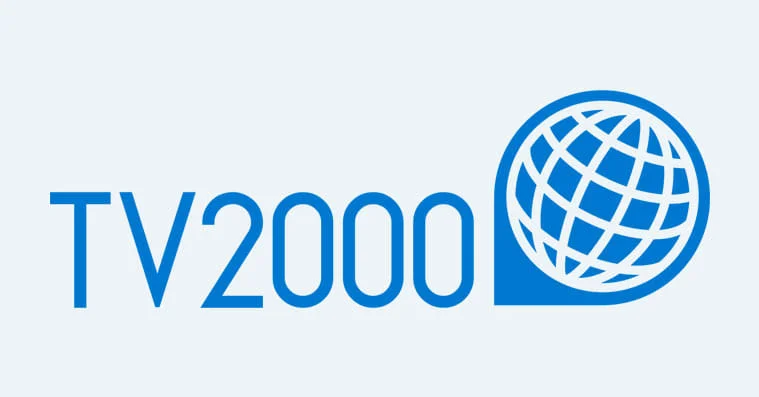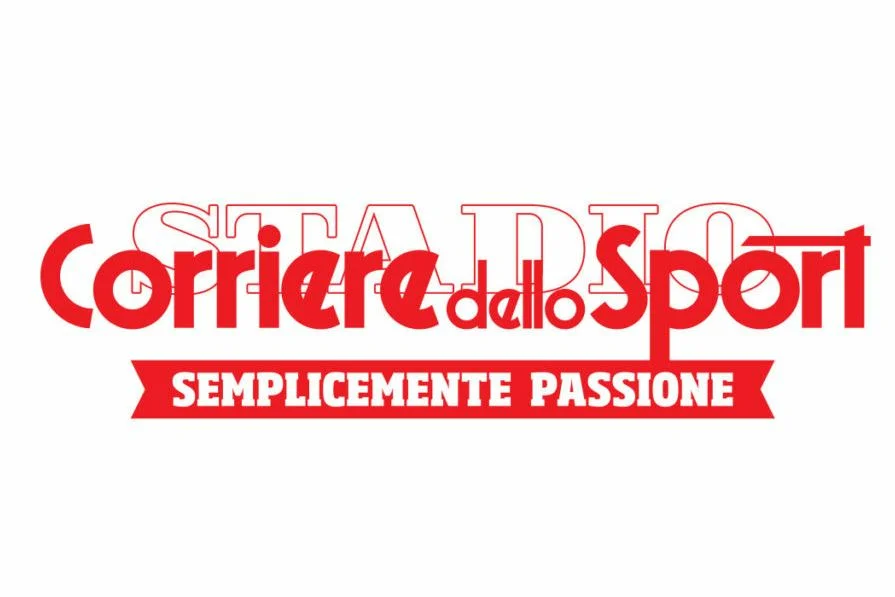Press Release

Tennis and Friends: Sensor Medica and Spine 3D in Turin
Among those taking advantage of the free checkups is Roberto Ciufoli. The Roman actor and comedian undergoes a computerized posture analysis. It’s one of over 70 check-ups organized in Piazza Castello by Tennis and Friends. Three days combining sports, healthy lifestyles, and medical screenings.
Watch the video (ITA) aired on TGR Piemonte (rainews.it): CLICK HERE!
- TG RAI 2

“A schiena dritta!” Postural prevention program for the most fragile groups starts in Guidonia.
On Wednesday, July 30, the first free appointment of the postural check-up prevention campaign was held at the Fisioterapia Italia Guidonia studio, organized by Banca delle Visite and Sensor Medica. An initiative that aims to support the weaker segments of the population by promoting prevention and wellness through free checkups and specialized consultations.
You can read the full article at this link: https://www.confinelive.it/a-schiena-dritta-parte-da-guidonia-il-programma-di-prevenzione-posturale-per-le-fasce-piu-fragili/

Back pain? 4 simple exercises to treat and prevent it, even in summer
Back pain, particularly in the lower back, is one of the most common complaints among adults: it is estimated that around 80% of people suffer from it at least once in their lives.
You can read the full article at this link: https://blog.ilgiornale.it/persiani/2025/07/02/mal-di-schiena-4-semplici-esercizi-per-curarlo-e-prevenirlo-anche-destate/

Avoiding injuries: why foot health is important in sport
Walking, running, football, padel. Your feet are your main point of contact with the ground and support your entire body weight. It is important to keep them healthy with expert advice and new technologies.
You can read the full article at this link: https://www.corrieredellosport.it/news/altri-sport/running/allenamento/2025/05/14-140671575/evitare_gli_infortuni_perch_importante_la_salute_del_piede_nello_sport

X-rays and health risks: technology comes to our aid
No one ever undergoes an X-ray lightly. As our grandmothers used to say, it’s always radiation and you never know what can happen. Today we have the answer: several studies have shown that exposure to ionising radiation, such as X-rays, affects our cells, both by modifying the structure of DNA and by causing the emission of free radicals that can produce harmful molecules and promote the onset of a carcinogenic process.
You can read the full article at this link: https://blog.ilgiornale.it/persiani/2025/03/13/raggi-x-e-rischi-per-la-salute-la-tecnologia-corre-in-nostro-aiuto/
- https://www.today.it/benessere/salute/tunnel-carpale-sintomi-prevenzione.html
- https://inmedicina.it/news/nuove-possibilita-nella-gestione-clinica-della-sindrome-del-tunnel-carpale/
- https://www.salute-e.it/2025/01/22/sindrome-del-tunnel-carpale-in-inverno-peggiora/
- https://www.sanitainformazione.it/serveundottore/malattie-terapie/tunnel-carpale-con-linverno-peggiora-ecco-come-difendersi/
- https://www.quotidiano.net/salute/news/sindrome–tunnel-carpale–freddo-dolore-cure-gvjyxe2z
- https://www.ilgiorno.it/salute/sindrome–tunnel-carpale–freddo-dolore-cure-gvjyxe2z
- https://blog.ilgiornale.it/persiani/2025/01/28/linverno-e-nemico-della-sindrome-del-tunnel-carpale/
- https://www.justlifebenessere.com/post/dolore-e-formicolii-alla-mano-i-consigli-prevenire-la-sindrome-del-tunnel-carpale?fbclid=IwY2xjawIEoXBleHRuA2FlbQIxMQABHQFTeD1WjtuoJNGaHKvZzgm98DiARZZS6tM_XlBgMVZqkol5oqsVQ5woHg_aem_ElHBGXbv1y8lz2QPFnXPQA
- https://www.facebook.com/salutepertutti.it/posts/pfbid0nUvf71GEbCbm1fN8veobRvJ1LqAJxGWaKbGjtLjoiteXyVKhhm9Stti9YhYodUFtl
- https://www.insalutenews.it/in-salute/tunnel-carpale-come-riconoscerlo-trattarlo-e-prevenirlo-con-approcci-innovativi/
- https://pinksociety.it/2025/01/28/tunnel-carpale-perche-peggiora-in-inverno-e-come-alleviarne-i-sintomi/
- https://www.ilfont.it/salute/sindrome-del-tunnel-carpale-col-freddo-peggiora-119036
- https://www.sanihelp.it/salute-benessere/salute/337757/sindrome-del-tunnel-carpale-2/
- https://www.comestarbene.com/sindrome-da-tunnel-carpale-e-freddo-cosa-fare-per-alleviare-il-dolore-e-migliorare-la-situazione/
- https://nursetimes.org/sindrome-del-tunnel-carpale-i-consigli-dellesperto-per-prevenirla-anche-con-approcci-innovativi
- https://www.luoghidellasalute.it/sindrome-del-tunnel-carpale-in-inverno-peggiora/
- https://blog.ilgiornale.it/persiani/2025/01/28/linverno-e-nemico-della-sindrome-del-tunnel-carpale/
- https://www.justlifebenessere.com/post/dolore-e-formicolii-alla-mano-i-consigli-prevenire-la-sindrome-del-tunnel-carpale
- https://www.facebook.com/salutepertutti.it/posts/pfbid0nUvf71GEbCbm1fN8veobRvJ1LqAJxGWaKbGjtLjoiteXyVKhhm9Stti9YhYodUFtl
- https://www.insalutenews.it/in-salute/tunnel-carpale-come-riconoscerlo-trattarlo-e-prevenirlo-con-approcci-innovativi/
- https://pinksociety.it/2025/01/28/tunnel-carpale-perche-peggiora-in-inverno-e-come-alleviarne-i-sintomi/
- https://www.ilfont.it/salute/sindrome-del-tunnel-carpale-col-freddo-peggiora-119036/
- https://www.sanihelp.it/salute-benessere/salute/337757/sindrome-del-tunnel-carpale-2/
- https://healthstories.it/sindrome-tunnel-carpale/
- https://www.thegoodnighter.com/2025/02/04/tunnerlcarpale/
- https://giornaleradio.fm/puntate/03-01-2025-120-minuti/
- https://www.vediamocichiara.it/novita-per-la-sindrome-del-tunnel-carpale/
- https://www.ok-salute.it/alimentazione/prevenzione/sindrome-del-tunnel-carpale-inverno-peggiora-ma-cosi-si-puo-alleviare/
- https://etvplay.espansionetv.it/episodes/angoli-21-2-2025-sindrome-del-tunnel-carpale-le-nuove-tecniche-biomeccaniche-di-valutazione/
Diagnosis and monitoring of spinal pathologies, can we do without radiation?
How many times does taking an X-ray involve evaluating the risk-benefit balance? Just think of children, pregnant women, but also the elderly with fragile bones. In these cases, today it is possible to use an innovative system called Spine3D, which combines artificial intelligence (AI) and radiation-free 3D scanning, offering a precise and non-invasive solution to identify spinal deformities. Thanks to the use of innovative technologies and neural networks, Spine3D represents a model of significant progress in spinal health and postural analysis.
Postural Disorders: The Contribution of New Technologies That Exploit AI
Posture, or the organization of the body in space, is a fundamental aspect of human health. Very often it is neglected until the first problems begin to arise, which in a large percentage of cases are simply the tip of the iceberg, actually hiding many other functional alterations of the body.
- https://www.adnkronos.com/immediapress/disordini-posturali-il-contributo-di-nuove-tecnologie-che-sfruttano-lia_39PQDABf0t5F2CGDWNBumU
- https://www.liberoquotidiano.it/news/adnkronos/39831837/disordini-posturali-il-contributo-di-nuove-tecnologie-che-sfruttano-l-ia.html
- https://www.padovanews.it/2024/07/11/disordini-posturali-il-contributo-di-nuove-tecnologie-che-sfruttano-lia/
- https://www.cronacadisicilia.it/2024/07/10/disordini-posturali-il-contributo-di-nuove-tecnologie-che-sfruttano-lia/
- https://www.tgabruzzo24.com/news-nazionali/disordini-posturali-il-contributo-di-nuove-tecnologie-che-sfruttano-lia/
- https://www.lospecialegiornale.it/tag/disordini-posturali/
- https://ilcentrotirreno.it/sito/immediapress/178053-disordini-posturali-il-contributo-di-nuove-tecnologie-che-sfruttano-l-ia.html
- https://laragione.eu/adnkronos/comunicati/disordini-posturali-il-contributo-di-nuove-tecnologie-che-sfruttano-lia/
- https://www.giornaleinfocastelliromani.it/disordini-posturali-il-contributo-di-nuove-tecnologie-che-sfruttano-lia/
- https://www.ilmillimetro.it/disordini-posturali-il-contributo-di-nuove-tecnologie-che-sfruttano-lia/
- https://www.adessonews.eu/2024/07/10/il-contributo-di-nuove-tecnologie-che-sfruttano-lia-finsubitoagevolazioni/
- https://www.vetrinatv.it/disordini-posturali-il-contributo-di-nuove-tecnologie-che-sfruttano-lia/
- https://www.sbircialanotizia.it/2024/07/10/disordini-posturali-il-contributo-di-nuove-tecnologie-che-sfruttano-lia/
- https://www.zazoom.it/2024-07-10/disordini-posturali-il-contributo-di-nuove-tecnologie-che-sfruttano-lia/15045517/
- https://primapavia.it/attualita/per-analizzare-la-colonna-vertebrale-a-pavia-ora-si-utilizza-anche-lintelligenza-artificiale/
- https://lapoliticalocale.it/per-analizzare-la-colonna-vertebrale-a-pavia-ora-si-utilizza-anche-lintelligenza-artificiale/
- https://www.quatarobpavia.it/intelligenza-artificiale-per-studiare-la-colonna-vertebrale-a-pavia-una-tecnica-innovativa/
SKI HOLIDAYS: HOW TO AVOID OR TREAT INJURIES AND FALLS
with the arrival of the snow, winter sports resume or, for the less experienced, even fun-filled mountain trips. Adults and children, athletes and non-athletes alike, find themselves dealing with more or less intense physical activity that puts muscles, bones and joints to the test.
- https://www.bella.it/vacanze-sulla-neve-come-evitare-o-curare-traumi-e-cadute/
- https://www.sportoutdoor24.it/salute/cure-rimedi/vacanze-sulla-neve-come-evitare-di-farsi-male/
- https://sportdaily.it/consigli-sport-neve-2023
- https://www.archysport.com/2023/12/ski-holidays-how-to-avoid-getting-hurt/
- https://www.luoghidellasalute.it/vacanze-e-sport-sulla-neve-come-evitare-o-curare-traumi-e-cadute/
- https://www.laragnatelanews.it/sport/vacanze-sulla-neve-cosa-fare-per-evitare-o-curare-traumi-e-cadute/86317.html
- https://pressitalia.net/2023/12/vacanze-e-sport-sulla-neve-come-evitare-o-curare-traumi-e-cadute.html
- https://citybiz.it/neve-e-sport-evitare-o-curare-traumi-e-cadute-ad-ogni-eta/
- https://www.sanihelp.it/mamma-bambino/261810/vacanze-sulla-neve-attenzione-alle-cadute-dei-piccoli/
- https://mohre.it/vacanze-sulla-neve-come-evitare-o-curare-traumi-e-cadute/
- https://www.tagmedicina.it/2023/12/28/vacanze-sulla-neve-come-evitare-o-curare-traumi-e-cadute/
- https://www.moltouomo.it/agenzie-pr-comunicati-stampa/vacanze-sulla-neve-come-prevenire-e-curare-gli-infortuni/

Spine 3d on TV2000 in the program "My doctor"
The novelty represented by the Spine3d technology is involving an increasing number of medical specialists, arriving to attract the attention of the specialized media. On February 24, the new live episode of the program “My doctor” (TV2000 broadcaster) was broadcast and viewers were able to appreciate the effectiveness of the instrumentation created not only to help specialists in their patient evaluation process , but also to preserve the health of the same, especially in relation to those more sensitive categories: children, pregnant women, the elderly, sportsmen who need to make frequent checks.
Two high-profile specialists explained how Spine 3d works: Dr. Daniele Mazza, orthopedic surgeon and first-level medical director at the Sant’Andrea University Hospital in Rome, and Dr. Ferruccio Montesi, podiatrist.
With the help of the patient Luca, we were able to see how Spine3d can help the doctor in the analysis of posture and in the overall evaluation of the back. Dr. Montesi clearly specified that the technology of the instrumentation is not a substitute for the classic x-ray analysis, but that it guarantees in-depth preliminary analyzes with the advantage of not targeting the patient with rays harmful to health. A completely non-invasive tool, as pointed out several times, but complete.
After a very short data processing time (about 10 seconds) the two specialists were able to proceed, live, with an initial analysis of the patient. Dr. Mazza showed the potential of the tool by analyzing – thanks to extremely defined 3D images – the spine under examination, immediately highlighting some points of interest regarding the patient’s conformation.
Similarly, Dr. Montesi was able, with a quick observation, to show a postural imbalance in the patient, represented by an advanced pressure of the left foot. All with a process that lasted a few seconds and in a completely non-invasive way, safeguarding the health of the boy under examination.
To view the video and learn more about the potential of Spine3d technology (Sensor Medica) this is the link: https://www.youtube.com/watch?v=eGbB3uvmOWM

Spine 3D on Medicina 33 (RAI News)!
The new episode of Medicina 33 (on Rai News), curated by Laura Berti, was aired today. And the service opened with a service – by Andrea Martino – dedicated to our Spine 3d.
Dr. Luca Marin (Laboratory of Adapted Motor Activity – LAMA – of the University of Pavia) illustrated the benefits of the non-invasive system created by Sensor Medica, showing how – even in the case of scoliosis – it is possible to undergo tests without the need use ionizing and potentially harmful rays.
You can see the service at this link: https://www.facebook.com/watch/?v=655727896186116
- https://www.prpchannel.com/regali-tecnologici-sotto-lalbero-attenzione-alla-postura/
- https://www.senzabarcode.it/2022/12/13/regali-dispositivi-tecnologici/
- https://babymagazine.it/regali-tecnologici-attenzione-alla-postura/
- https://www.medwellness.it/limpatto-della-tecnologia-sulla-postura-gli-esperti-consigliano-prevenzione-e-monitoraggio/
- https://vogliadisalute.it/regali-tecnologici-attenzione-alla-postura/
- https://www.politicamentecorretto.com/2022/12/12/regali-tecnologici-sotto-lalbero-attenzione-alla-postura/
- https://okayscuola.org/2022/09/11/ritorno-a-scuola-zaini-postura-tecnologia-sempre-piu-invasiva-i-rischi-da-non-sottovalutare/
- https://radiosalute.it/scoliosi-salute-schiena-rischio-zaini/
- https://www.larampa.it/2022/09/ritorno-scuola-riecco-zaini-pesanti-schiena-rischio/
- https://www.vediamocichiara.it/ritorno-a-scuola/
- https://www.tagmedicina.it/2022/09/13/scuola-zaini-schiena/
- https://www.skuola.net/scuola/ritorno-scuola-zaini-pesanti-consigli-salute-studenti.html
- https://italoblogger.com/zaini-pesanti-schiena-a-rischio-i-consigli-degli-esperti/
- https://thedailycases.com/ritorno-a-scuola-zaini-pesanti-schiena-a-rischio-i-consigli-degli-esperti/
- https://www.altovicentinonline.it/rubriche/salute/si-ritorna-a-scuola-zaini-pesanti-e-schiena-a-rischio/
- https://www.italiachiamaitalia.it/ritorno-a-scuola-zaini-pesanti-schiena-a-rischio-i-consigli-degli-esperti/
- https://www.progettoitalianews.net/news/ritorno-a-scuola-zaini-pesanti-schiena-a-rischio-i-consigli-degli-esperti/
- https://www.regione.vda.it/notizie/details_i.asp?id=427564
- http://www.salutedomani.com/article/scuola_suona_la_campanella_e_tornano_gli_zaini_pesanti_34121
- https://www.tecnicadellascuola.it/inizio-scuola-zaini-pesanti-e-posture-scorrette-a-cosa-fare-attenzione-per-evitare-danni-nel-sistema-scheletrico-degli-alunni
- https://www.lavocedellascuolalive.it/2022/09/05/ritorno-a-scuola-zaini-pesanti-schiena-a-rischio-i-consigli-degli-esperti/
- https://www.professionedocente.com/inizio-scuola-zaini-pesanti-e-posture-scorrette-a-cosa-fare-attenzione-per-evitare-danni-nel-sistema-scheletrico-degli-alunni/
- https://www.insidertrend.it/2022/09/06/scuola/salute-adolescenti-ritorno-a-scuola-zaini-pesanti-e-schiene-a-rischio-i-consigli-degli-esperti/
- https://corrierequotidiano.it/scuola/ritorno-a-scuola-zaini-pesanti-schiena-a-rischio-i-consigli-degli-esperti/
- https://www.periodicodaily.com/schiena-salvaguardare-con-i-consigli-degli-esperti-lama/
- https://www.osservatoreitalia.eu/ritorno-a-scuola-zaini-pesanti-e-schiena-a-rischio-ecco-i-consigli-degli-esperti/
- https://lamilano.it/scuola/ritorno-a-scuola-zaini-pesanti-e-schiena-a-rischio/
- https://www.italiasera.it/ritorno-a-scuola-zaini-pesanti-e-schiena-a-rischio-per-gli-scolari-ecco-i-consigli-degli-esperti/
- https://www.confinelive.it/ritorno-a-scuola-zaini-pesanti-schiena-a-rischio-i-consigli-degli-esperti/
- https://mediterranews.org/2022/09/ritorno-a-scuola-zaini-pesanti-schiena-a-rischio-i-consigli-degli-esperti/
- https://www.centrometeoitaliano.it/salute/bambini-ecco-cosa-puo-succedere-se-lo-zaino-e-troppo-pesante-a-scuola-124566/
- https://www.italia-news.it/ritorno-a-scuola-zaini-pesanti-schiena-a-rischio-i-consigli-degli-esperti-24412.html
- https://www.perugiatoday.it/benessere/salute/mal-di-schiena-rientro-in-ufficio.html
- https://www.worldmagazine.it/748675/
- https://www.pointofnews.it/ultime_notizie_su_giorno/articolo-3781199-Rientro_in_ufficio%3A_le_mosse_giuste_per_salvaguardare_la_schiena
- https://www.zazoom.it/2022-09-07/rientro-in-ufficio-le-mosse-giuste-per-salvaguardare-la-schiena/11530926/
- https://ultimenotizie.press/mal-di-schiena-al-rientro-in-ufficio-cosa-bisogna-sapere-e-come-difendersi-34901.html
- https://www.vediamocichiara.it/rientro-in-ufficio-le-mosse-giuste-per-salvaguardare-la-schiena/
Back pain on vacation, some tips to avoid it
- https://www.ilgiorno.it/cronaca/vacanze-mal-schiena-consigli-1.7884522
- https://www.tagmedicina.it/2022/07/14/lestate-nemici-della-schiena/
- https://pressitalia.net/2022/07/lestate-e-i-nemici-della-schiena.html
- https://www.senzabarcode.it/2022/07/14/schiena-lama/
- https://hdtvone.tv/video/lestate-e-i-nemici-della-schiena
- https://www.meteoweb.eu/2022/07/estate-problemi-schiena/1001109882/
- https://www.lenews.info/laboratorio-di-attivita-motoria-adattata-come-evitare-il-mal-di-schiena/
- https://ilcircolaccio.it/2022/07/13/lestate-e-i-nemici-della-schiena-i-consigli-degli-esperti-lama-per-godersi-le-vacanze/
- https://thepreviewmagazine.com/schiena-estate-lama/
- https://pinksociety.it/2022/07/12/finalmente-le-vacanze-ma-attenzione-ai-nemici-della-schiena/
- https://www.sanitainformazione.it/serveundottore/prevenzione/estate-quali-sono-i-nemici-della-schiena-la-guida-per-le-vacanze/
- https://www.calciomagazine.net/mal-di-schiena-consigli-pratici-164515.html
- https://www.imgpress.it/stracult/lestate-e-i-nemici-della-schiena-i-consigli-degli-esperti-lama-per-godersi-le-vacanze/
- https://www.prpchannel.com/lestate-e-i-nemici-della-schiena/
- https://italoblogger.com/lestate-e-i-nemici-della-schiena/
- https://www.politicamentecorretto.com/2022/07/12/lestate-e-i-nemici-della-schiena/
- http://www.ilgiornaleweb.it/cultura/societa/5558_estate-e-mal-di-schiena-i-consigli-degli-esperti-lama-au55.html
- https://www.oltrelecolonne.it/lestate-e-i-nemici-della-schiena/
Here are the summer enemies of the back
- https://blog.ilgiornale.it/persiani/2022/07/08/ecco-i-nemici-estivi-della-schiena/
- https://www.lavocedeibrand.com/lestate-e-i-nemici-della-schiena-i-consigli-degli-esperti-delluniversita-di-pavia/
- https://www.newsbalneari.com/lestate-e-i-nemici-della-schiena-i-consigli-degli-esperti-del-laboratorio-lama-delluniversita-di-pavia/
- https://www.clicmedicina.it/nemici-schiena-estate-ecco-come-evitarli-consigli-lama-uni-pavia/
- https://www.ladyblitz.it/benessere/estate-si-attivita-fisica-ma-attenzione-alla-schiena-i-consigli-degli-esperti-1738260/
- http://tuttorosamagazine.altervista.org/lestate-e-i-nemici-della-schiena/
- https://rassegnastampa.news/lestate-e-i-nemici-della-schiena
- https://www.informazione.it/a/F1381AA4-02FC-47A3-ABA2-BDF1881107F0/LAMA-consigli-di-Attivita-Motoria-Adattata-per-la-schiena-nelle-vacanze
The summer and the enemies of the back
- https://www.tuttosport.com/news/altri-sport/running/2022/07/06-94448836/vacanze_estive_e_i_nemici_della_schiena
- https://www.italiaatavola.net/salute-sport/sport-stile-di-vita/2022/7/6/estate-tempo-di-sport-come-non-farsi-male-alla-schiena/88181/
- https://salutepertutti.it/2022/07/05/lestate-e-i-nemici-della-schiena/
- https://www.periodicodaily.com/lama-consigli-di-attivita-motoria-adattata-per-la-schiena-nelle-vacanze/
- https://www.lavocedeimedici.it/2022/07/06/lestate-e-i-nemici-della-schiena-i-consigli-degli-esperti-lama/
- https://www.zazoom.it/2022-07-05/lama-consigli-di-attivita-motoria-adattata-per-la-schiena-nelle-vacanze/11191500/
- https://indexmedical.it/articoli/lestate-e-i-nemici-della-schiena-i-consigli-degli-esperti-del-laboratorio-di-attivita-motoria-adattata-lama-delluniversita-di-pavia-per-godersi-le-vacanze/
- https://www.sevenpress.com/lestate-e-i-nemici-della-schiena/2022/07/05/411961/
- https://www.agoranews.it/lestate-e-i-nemici-della-schiena.html
- https://www.luoghidellasalute.it/lestate-e-i-nemici-della-schiena
- https://www.italiasalute.it/2489/L’estate-e-i-nemici-della-schiena.html
- https://corrierequotidiano.it/sanus-vivere/lestate-e-i-nemici-della-schiena/
- http://www.pianetasaluteonline.com/2022/07/06/lestate-e-i-nemici-della-schiena/
Back pain and postural analysis
- https://blog.ilgiornale.it/persiani/2022/05/13/mal-di-schiena-e-analisi-posturale-una-nuova-tecnologia-diagnostica-senza-radiazioni/
- https://www.sanitadomani.com/mal-di-schiena-chi-non-lo-ha/
- https://altraeta.it/mal-di-schienauna-nuova-tecnologia-per-controlli-efficaci-senza-radiazioni/
- https://www.tagmedicina.it/2022/05/17/tecnica-diagnostica-analisi-posturale/
- https://www.laltramedicina.it/notizie/mal-di-schiena-e-analisi-posturale-una-nuova-tecnologia-per-controlli-efficaci-senza-radiazioni/
- https://www.quisalute.online/attualita/mal-di-schiena-e-analisi-posturale-nuovi-controlli-efficaci-e-privi-di-radiazioni/
- https://www.milanofinanza.it/news/tecnologia-senza-radiazioni-per-mal-di-schiena-e-analisi-posturale-202205091118115119
- https://www.clicmedicina.it/mal-di-schiena-analisi-posturale-tecnologia-spine-3d-controlli-senza-radiazioni/
- https://www.medicalexcellencetv.it/innovazione-per-il-benessere-spine3d-una-nuova-soluzione-tech-per-la-valutazione-posturale-senza-radiazioni/
- https://www.today.it/benessere/salute/mal-di-schiena-cause-come-prevenirlo.html
- https://indexmedical.it/articoli/mal-di-schiena-e-analisi-posturale-una-nuova-tecnologia-per-controlli-efficaci-senza-radiazioni/
- https://www.tecnomedicina.it/mal-di-schiena-e-analisi-posturale-una-nuova-tecnologia-per-controlli-efficaci-senza-radiazioni/
- http://www.pianetasaluteonline.com/2022/05/08/mal-di-schiena-e-analisi-posturaleuna-nuova-tecnologia-per-controlli-efficaci-senza-radiazioni/
- https://24live.it/2022/05/06/mal-di-schiena-e-analisi-posturaleuna-nuova-tecnologia-per-controlli-efficaci-senza-radiazioni/
Lorem ipsum dolor sit amet, consectetur adipiscing elit. Ut elit tellus, luctus nec ullamcorper mattis, pulvinar dapibus leo.












